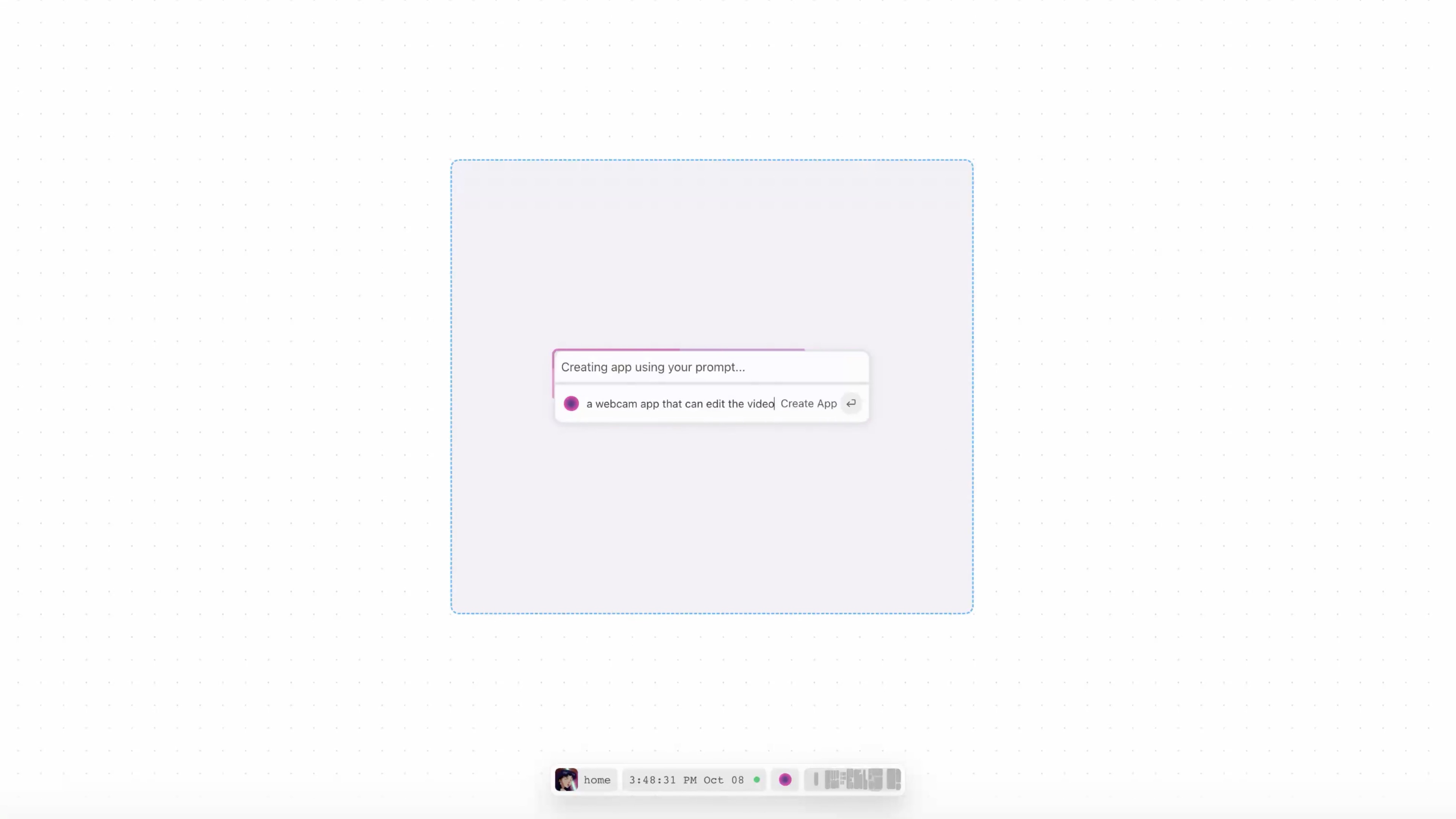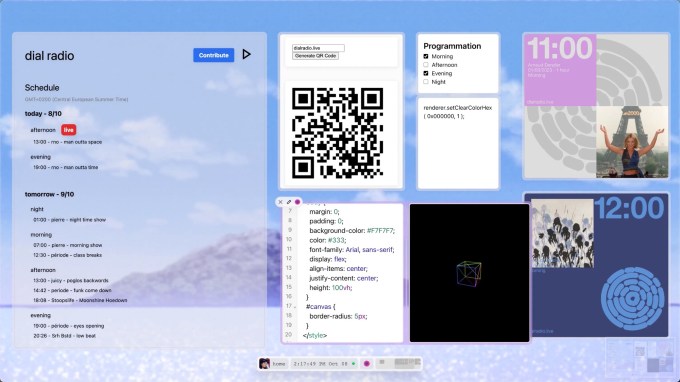Deta wants to reinvent personal computers with a new cloud OS
Traditionally, cloud-based workstations have aimed to provide virtual machines that users can access from anywhere and also run apps around the clock. Berlin-based company Deta is trying to flip the script by developing a whole new infinite canvas-like operating system and a personal cloud space.
The Berlin and New York-based company was founded by Mustafa Abdelhai and Max Eusterbrock in 2019. The company started building a new operating system and a space on the ethos of letting people “own” their data in apps.
Deta is launching its Space today for everyone to try. But it might not be primed for a regular user yet, given the interface and app ecosystem could benefit from some iterations. Deta Space has a “Horizon” interface, which resembles an infinite whiteboard. You can swipe through the board in “stretches,” which are home page versions of the SpaceOS.
Users can draw anything, including a text box, an embedded link, an installed app, a webcam stream or a YouTube video card. The initial interface looks like collections of “stretches” or pages filled with apps or widgets.

Image Credits: Deta
App ecosystem
Deta already has an ecosystem of apps for taking notes and text editors, conversing with AI chatbots, link organizers, image and file hosting, and games. Users can pin all these apps to their Space and export their personal data within a few clicks.
The company said that it offers a simple SDK, and supports most languages for development apart from the ones requiring their own virtual machines like Java. Deta offers a fully managed server and database system so developers don’t need to worry about infrastructure. The startup said that it plans to roll out monetization for developers soon.
Users can explore these apps through the “Discovery” app store. The company has started reviewing the apps submitted by developers and the vetted apps will have a “Verified by Deta” label. However, developers can still submit apps without going through a review. The company is banking on the fact that other users can see the code of the app, but it takes time and effort for other developers to do that. Plus, non-technical users won’t have the chops to inspect the app.
One of the prime features of Deta Space is called Teletype, which is a context-aware helper with AI chops. Even if a user can’t code, they can ask Teletype to spin up apps like timers and stopwatch just by describing them.

Creating an app through a prompt. Image Credits: Deta
Roadmap
Deta has raised $3.6 million in a seed round led by Crane Venture Partners, with participation from System.One, Tomahawk.VC, Tiny.VC, Acequia Capital, Angel Invest and NPHard.
The company is planning to invest this money into developing Deta Space. One of the features the startup is working on is the interoperability of apps, where users can call one app from another. For instance, you will be able to save a response generated by ChatGPT into a notes app by calling through the action button. Another example is that you will type a string of text and Teletype will suggest apps for contextual action.
Deta is also developing an infinite Horizon interface instead of limiting users to only six pages or “stretches.”
The company aims to ship a new version of its SDK, called SpaceKit 2.0, by the end of the year with developers being able to directly embed AI into their apps for better interoperability.
Companies like Shadow offered a fully configured PC for a fixed price so people could use Windows from anywhere. Deta is trying to get users to adopt a whole new operating system and app ecosystem. At the moment, it is offering 5GB of storage per user and doesn’t charge anything for using the platform. Down the road, the startup plans to think about having a priced tier with features like extra storage.
The challenge for Deta is to have consumers adopt a whole new system. Aneel Lakhani, an investor at Crane VC, told TechCrunch that the startup will develop its own universe of apps where users will find new use cases.
“We typically back software platforms of the future. With Deta, we believe that it gives ownership of data to users while developing a new way to interact with apps,” he said.




